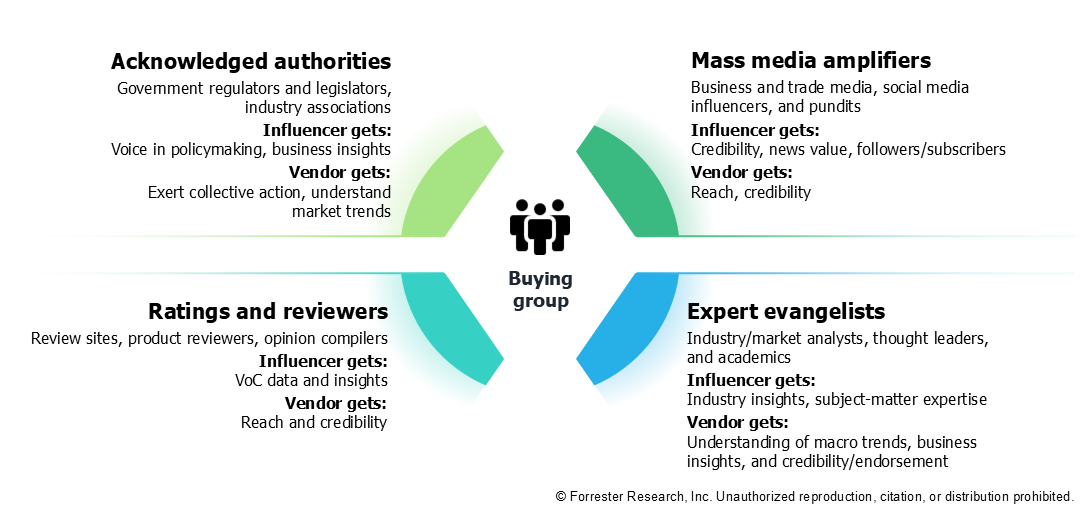It’s Time To Reinvent B2B Influencer Relations
Today’s B2B buyers are empowered, independent, and decisive — they no longer rely primarily on vendors for information. They’re often armed with clear insights about the products or solutions they need and the providers they prefer before they directly engage. And the growing impact of external influencers — independent third-party organizations and individuals such as the business press, review sites, industry analysts, and academics — is reshaping buyers’ decision-making processes.

Traditional Approaches Fall Short In The New Influence Economy
Today, external influencers wield far greater authority. A striking 72% of B2B buyers trust peers in their industry, while 68% rely on industry analysts for unbiased insights. Even social media influencers — once considered the domain of B2C marketing — now influence 44% of B2B buyers. These figures underscore a fundamental truth: Buyers seek credible, independent voices that offer authenticity, competence, and dependability, rather than relying solely on vendor claims.
This growing reliance on influencers extends across the buyer’s journey. From the initial discovery phase to final purchase decisions — and even postsale interactions — influencers shape perceptions, validate decisions, and amplify reputations. For example, Forrester’s Buyers’ Journey Survey, 2025, found that industry experts are often the trigger for buyers to engage with vendors while stalled purchases are also attributed to external influencer commentary. Influencers have the power to either accelerate or halt the buying process.
Reinvent Influencer Relations For Modern Buyers
B2B providers can no longer afford to treat influencer engagement as an afterthought or episodic activity. Instead, they must make it core to both their brand and demand strategies, and they must adopt a proactive, continuous approach that prioritizes authenticity, mutual value exchange, and alignment with buyer needs. To reinvent influencer relations, organizations should:
- Map influence across the customer lifecycle. Identify key influencers who shape buyer decisions during the discover, evaluate, and commit phases, as well as postsale interactions.
- Prioritize engagement based on impact. Evaluate influencers using objective criteria like trust, relevance, and reach, and focus efforts on those who drive the most value for both buyers and providers.
- Foster mutually beneficial relationships. Build partnerships based on dual materiality, ensuring that influencers gain meaningful benefits — such as access to insights — while vendors gain endorsements and credibility.
By implementing these strategies, B2B providers can strengthen their position in the new influence economy, where trusted voices drive buyer behavior and competitive differentiation.
Embrace A New Era Of Influencer Relations (Or Watch Your Competition Do So)
The era of empowered buyers demands a new approach to influencer relations. As external voices increasingly shape decision-making, B2B providers must adapt their strategies to engage authentically, build credibility, and foster lasting partnerships with the influencers that buyers trust most.
Forrester clients can download our latest research report, External Influencers Drive Buying Group Decisions, for a deeper dive into how B2B organizations can navigate the evolving influence economy, or schedule a guidance session with Ian Bruce or Karen Tran.
